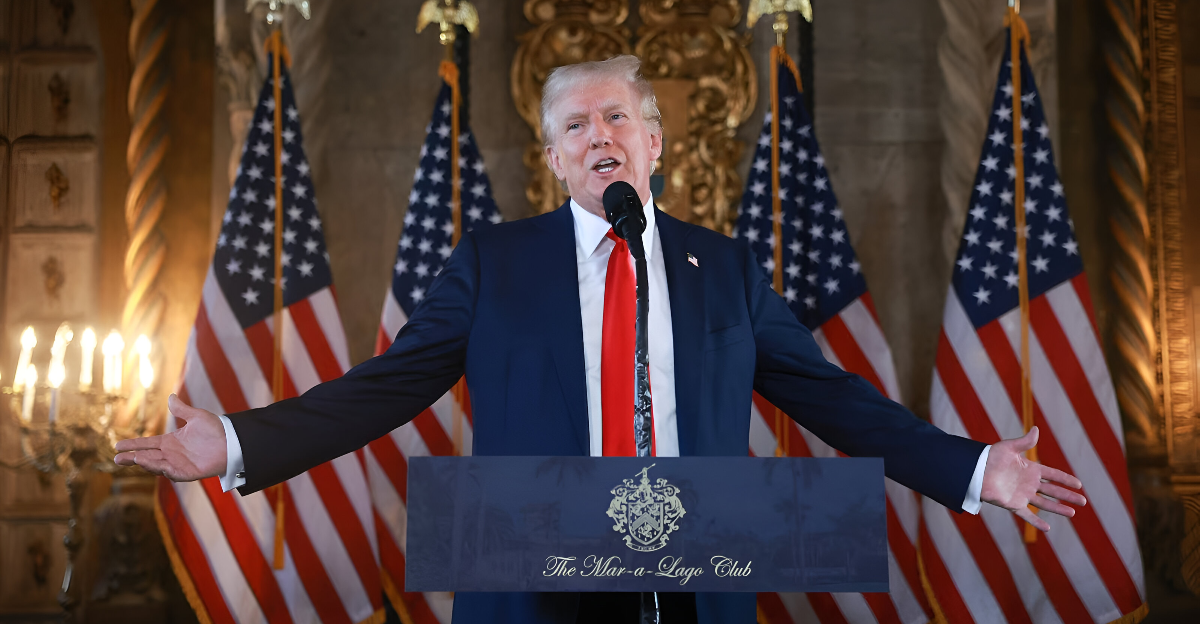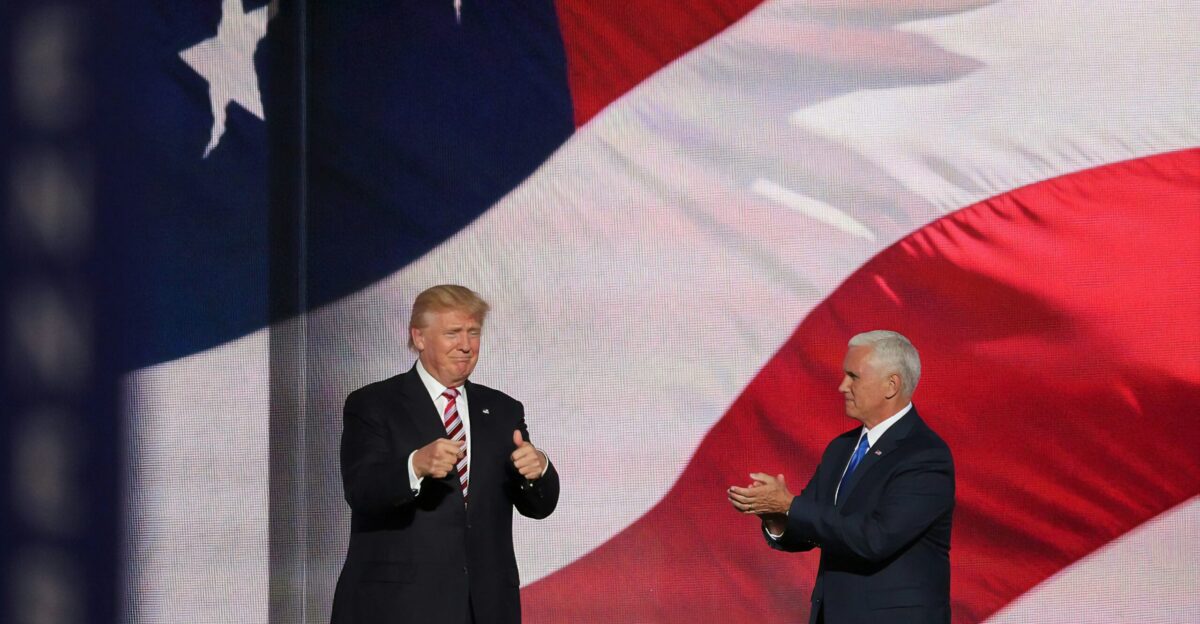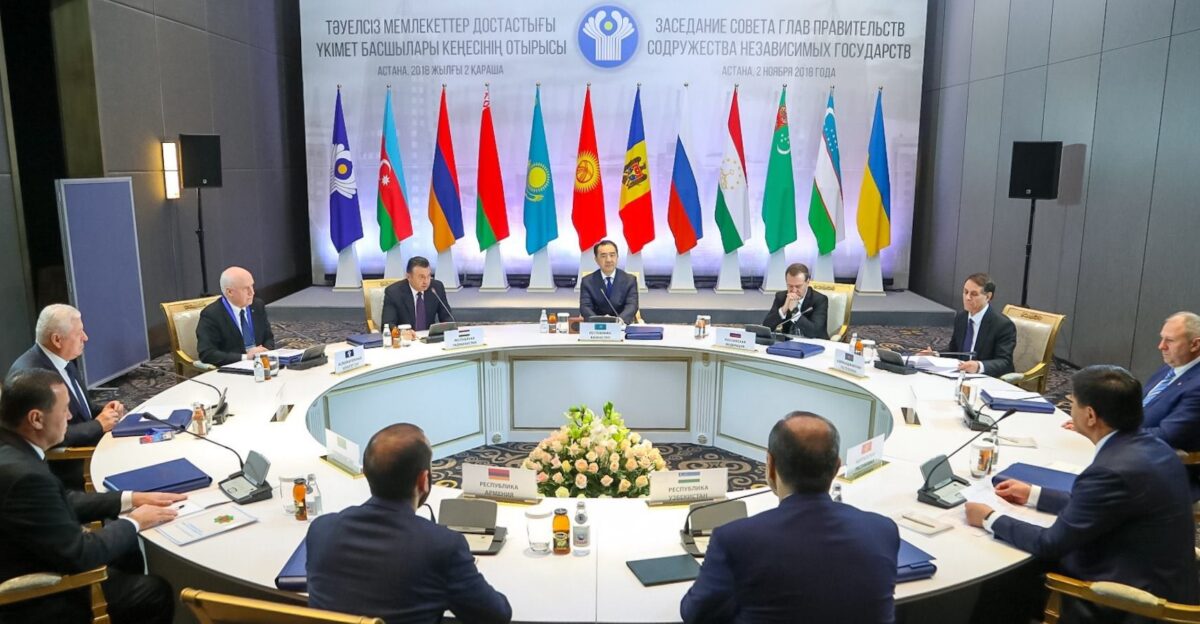
Conservative commentators and economists are increasingly alarmed by President Trump’s recent decision to acquire equity stakes in major U.S. companies, notably Intel. This unprecedented move raises questions about executive intervention in the private sector and signals growing discomfort among traditional conservatives. It reignites long-standing debates on economic policy and government involvement in business operations.
“We never anticipated such direct government participation in what is traditionally a free marketplace,” remarked a financial analyst, highlighting the unease surrounding this decision. This controversial stance reshapes critical conversations in both Washington and broader industry circles, leaving stakeholders uncertain about the implications.
Shocking Precedent Set

The government’s acquisition of a 10% stake in Intel marks a striking departure from established free-market principles. Critics assert that this intervention raises serious concerns over government overreach and potential cronyism, arguing that such political maneuvering risks altering corporate governance. “This could spell disaster for free enterprise,” warned a prominent economist, emphasizing the dangers of intertwining politics with business.
The prevailing sentiment is that this move could have unintended consequences for shareholders and taxpayers. As debates continue, voices of dissent grow louder, warning that the lines between public policy and corporate interests are dangerously blurred.
Historical Context

The U.S. government has historically employed federal funds to support domestic chip production through initiatives like the CHIPS Act. Nonetheless, transitioning from grants to direct ownership represents a significant shift in policy, typically reserved for economic crises.
“We rarely see this kind of aggressive intervention unless under dire circumstances,” stated a former government official, reflecting on past interventions focused on stabilization rather than long-term ownership. This new direction raises questions about the motivations behind such actions and whether they are rooted in genuine economic strategy or politicized interests.
Political Pressures Escalate

As pressure mounts from both sides of the political spectrum, traditional definitions of American capitalism are being challenged. Observers caution that this move could set a concerning precedent for future administrations, ultimately influencing corporate governance far beyond Intel. “If this becomes the norm, we could see a dramatic shift in how companies operate,” expressed a business consultant.
The pervasive anxiety about government involvement has created a ripple effect, igniting widespread hesitation within business and regulatory arenas as stakeholders navigate the evolving landscape.
Landmark Investment Revealed

On August 22, 2025, Commerce Secretary Howard Lutnick confirmed that the federal government had acquired a 10% stake in Intel through an $8.9 billion investment. This landmark transaction positions U.S. taxpayers as one of Intel’s most significant shareholders, prompting immediate national debate over the implications of such a move.
“This changes everything about public-private partnerships,” remarked a tech industry leader, stressing the unprecedented nature of government influence in private enterprise. Stakeholders are now grappling with the ramifications of having the government as a shareholder in a major tech company.
Local Impact Analysis

The government’s investment in Intel is poised to directly impact communities where the chipmaker operates, particularly in Arizona and California. Local officials are optimistic, anticipating growth and job creation due to the new funding. “We believe this investment can revitalize our local economy,” said an Arizona mayor, expressing hope for positive change.
However, uncertainty regarding long-term stability lingers as Intel begins to restructure its operations in light of government ownership. The push for job creation presents opportunities and challenges, especially concerning workforce transitions amid ongoing corporate changes.
Workforce Concerns

Intel’s workforce is facing significant upheaval, with plans to reduce headcount by 25%. Employees are understandably anxious about job security, particularly given the partial influence of the government over company strategy. “We’re worried about how much Washington will dictate decisions that impact our lives,” shared a long-time Intel employee, reflecting the sentiments of many workers.
As Intel grapples with restructuring and adaptation to new ownership dynamics, the uncertainties surrounding corporate direction cause stress among the workforce, raising critical questions about job accessibility and stability.
Competitive Landscape Changes

Intel’s competitors, including Nvidia and AMD, are recalibrating their strategies in response to this unexpected government involvement. The prospect of U.S. government contracts favoring Intel has sparked tension within the tech and manufacturing sectors.
“This could skew the playing field entirely,” cautioned an industry analyst, emphasizing the potential implications for competition. As rivals reassess their positions, the tech industry’s landscape may shift dramatically. Observers closely monitor whether these changes will enhance or hinder innovation across the board as market dynamics evolve.
Global Perspectives

Economists draw on global examples to illustrate the risks of increased government involvement in private enterprise. Case studies of state-run enterprises in China and Russia indicate they often lag behind their privately-run counterparts in terms of innovation and growth.
“There’s a clear pattern showing that government interference can stifle progress,” remarked a leading economist, warning that similar trends in the U.S. could undermine its technology leadership. As concerns about productivity and the competitive landscape grow, the broader implications for the U.S. economy become increasingly pressing.
A New Risk for Shareholders

In regulatory filings, Intel highlighted that government ownership could introduce new shareholder risks. The company may encounter difficulties pursuing specific strategic initiatives, facing restrictions or shifting priorities influenced by the prevailing political climate. “It feels like we’re entering uncharted territory,” commented a financial advisor.
This evolving dynamic raises alarms among investors, who must now consider the impacts of political influence when evaluating corporate strategies and profitability. As the landscape shifts, the potential for increased volatility looms large, prompting careful deliberation by stakeholders.
Ideological Divides Deepen

The government’s buy-in has ignited intense backlash from specific stakeholders, particularly among conservative media figures. Many openly denounce the acquisition as contrary to core American values. Erick Erickson remarked, “If you support socialism, apparently Donald Trump is your guy,” emphasizing the growing ideological divide this decision represents.
As criticisms escalate, discussions on economic principles and governmental roles in private enterprise gain urgency. Various factions are now reconciling their beliefs with the latest developments, reflecting the deeply entrenched perspectives on capitalism and government intervention.
Leadership and Direction

President Trump and his administration are pivotal in shaping policy regarding these equity investments. While his team emphasizes the buy-in as a strategic move designed to bolster domestic industries, the situation at Intel reflects underlying disruptions. Following recent CEO resignations, questions arise about leadership stability and the impacts of this unique intervention.
“Adapting to government involvement is a new challenge for corporate leaders,” a corporate governance expert noted. The evolving relationship between government interests and corporate leadership illustrates the complexities of navigating these uncharted waters.
Outlook for Strategic Plans

Intel has articulated plans to utilize recent government funding to modernize and expand its manufacturing footprint in the U.S. The company aims to restore its competitive edge in the rapidly growing AI chip market. “This investment is vital for our future,” stated an Intel executive, signaling the firm’s commitment to evolving in response to market demands.
However, skepticism remains among analysts about whether these initiatives will succeed, considering the risks associated with government ownership and the shifting technological landscape.
Expert Opinions on Future Consequences

Michael Strain from the American Enterprise Institute cautions against the long-term implications of governmental involvement in private enterprise, stating, “Countries that have gone down this route frequently experience slower productivity growth and diminished innovation.” His assessment resonates with fears about the U.S. maintaining its competitive edge in the global market.
As public discussions continue, the need to scrutinize this emerging paradigm grows. “We must learn from others’ mistakes,” Strain added, underscoring the importance of understanding the potential pitfalls of such a significant intervention.
Looking Toward Future Buy-Ins

As the dust settles on the acquisition of Intel, questions abound regarding whether the U.S. government will pursue similar equity investments in other companies. Stakeholders express uncertainty and curiosity about potential expansions of this strategy and what it might entail. “We’re left wondering about the next steps,” mentioned a seasoned investor.
Officials have not clarified any timeline for divesting their stake in Intel or for further government interventions in the private sector. Observers will be vigilant in watching how this situation unfolds, eager for insights into its broader implications.
Economic Sentiment Shifts

As the government navigates its newfound role as a significant shareholder, economic sentiment is beginning to shift, particularly among business leaders and investors. Many are cautiously optimistic about the growth potential, yet maintain a degree of skepticism about government involvement.
“It’s a double-edged sword,” comments a venture capitalist. “We want innovation and growth, but the government can often complicate things.” The sentiment reflects a delicate balancing act as business leaders assess the implications of continued governmental influence on operations and prospects.
Community Reactions

In the wake of this investment, local communities near Intel facilities are experiencing a mix of hope and apprehension. While many local officials are excited about job creation and economic development, some residents voice concerns about job security and government encroachment in the business.
“We want growth, but we’re worried about the long-term effects on our community,” remarked a local union leader. This dialogue encapsulates the tension between potential benefits and the anxiety surrounding government participation in private markets, underscoring the situation’s complexities.
Looking Internationally

Globally, the implications of governmental stakes in private enterprises will be closely monitored, particularly regarding competitive landscapes and innovation. Countries weighing similar actions may look to the U.S. as a case study and evaluate the results. Countries with state-run enterprises might reconsider their approaches based on how Intel adapts to this new dynamic.
“We could be at a pivotal moment for global markets,” an international business expert predicted. Observations from abroad will help shape future policy considerations and areas of focus as stakeholders draw lessons from these developments.
Resistance to Change

Resistance to this new reality is palpable among various sectors, from corporate leaders to free-market advocates. Many are voicing strong opposition to perceived governmental overreach into private enterprise. “The more the government sticks its nose in, the more it dampens innovation,” remarked a prominent technology entrepreneur.
As this dialogue develops, the resistance illustrates deep-seated convictions regarding the principles of capitalism and entrepreneurship. How this resistance will influence policy discussions and corporate strategies remains an open question as the landscape evolves.
Awaiting the Future

As the narrative around government equity stakes unfolds, stakeholders are left weighing opportunities and challenges. The implications for Intel, its competitors, and the larger economy are profound, with sentiments ranging from enthusiasm to apprehension. This situation represents a definitive departure from traditional practices, and its resolution could shape the future of corporate governance and economic policy.
“We are at the beginning of a new era,” stated an economic historian, leaving uncertainty about how these changes will ultimately redefine the relationship between government and private enterprise. The stakes have never been higher.